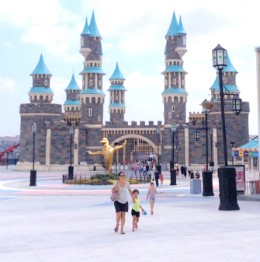Countries are likely to impose further travel restrictions to Turkey following yesterday’s fatal explosion in the centre of Istanbul’s tourist district, according to a senior analyst from Euromonitor.
Most of the 10 killed were German tourists with a further nine of the 15 injured also being from Germany, say latest reports.
Kinda Chebib, senior analyst at Euromonitor International, said: “The explosion at Istanbul’s most prominent tourist attraction is expected to impact negatively on inbound flow to Turkey on the short-to-medium term.
“The fact that the explosion occurred in the deep centre of Istanbul and that tourists from Germany and Norway were among the casualties is expected to result in further travel restrictions and flights banned towards the destination in the coming days.
“Indeed, major source European markets are very likely to take preventive measures so as to protect their citizens traveling to the popular outbound market.”
Russia’s state tourism agency had already recommended a boycott of Turkey after the country shot down a Russian fighter jet in November. Germany is the largest market to Turkey, followed by Russia, which was also its fastest growing. The UK is the third largest market.
So far, the British Foreign Office has not changed its travel advice for Turkey and the German government is not advising its citizens to avoid the destination, but it has issued new advice urging them to stay away from crowded places in the country.
“Despite major media being blocked at the scene, tourism industry in Turkey is predicted to suffer from the recurrent attacks on tourist spots those past years,” said Chebib.
The country was already on alert after 103 people were killed last October when two suicide bombers attached a group of activists in Ankara.
Visa allowances are also likely to get restricted and borders securities tightened as the operation was blamed on Islamic State. Kurdish splinter group, the Freedom Falcons of Kurdistan, as well as insurgents from PKK (separatist organisation seeking Kurdish autonomy) are also under watch since the freedom movement claimed responsibility for Istanbul second international airport attack last 23 of December.
The Turkish economy is suffering from the multiple attacks and geopolitics tensions in 2015. After reaching $35 billion in total tourism revenues in 2014, Turkey’s tourism profits fell by 4.4 % to $12.29 billion in the third quarter of 2015.
Turkey was in 2014 the world’s sixth most attractive destination, with a record of 34.8 million visitors. Outbound figures started to decline after the EU imposed sanctions against Russia over the crisis in Ukraine in 2015, impacting on the Russian flow towards Turkey – 4.5 million Russian tourists visited Turkey annually until 2015.
After the suicide bombing killing 32 people in the Turkish town of Suruc last July, nine countries including Germany and Russia issued travel restrictions to their citizens.


























